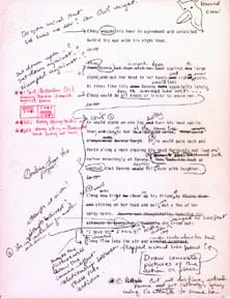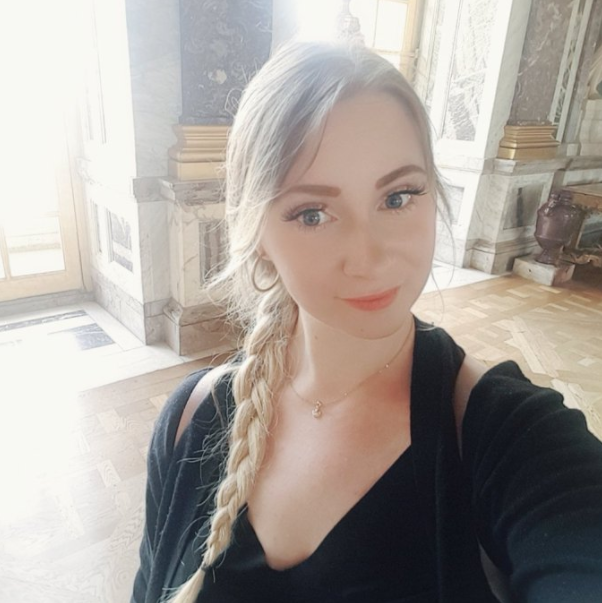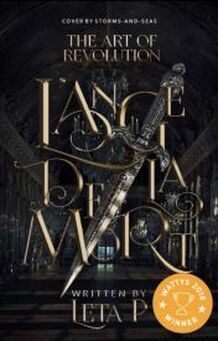Start Marketing NowStart your marketing campaign the moment you type ‘The End’. In fact, you might be better off to start marketing your story even before it is finished. The essential first step is to establish yourself online with an author website if you have not already done so; I find that both Weebly and Wix are excellent options for building a basic site that looks professional. If you buy your own domain it may include an email, depending on what package you purchase. If not, it is important to get a professional email through which you can correspond with agents, publishers, and future readers. Start creating a mailing list early on as this will be your most essential marketing tool once the book comes off the printing press. Most authors I know use MailChimp which is slick and secure; it also happens to be free until you get over two hundred and fifty subscribers. While social media presence is looked upon favourably by agents and publishers, I suggest choosing one platform and focussing on it exclusively. Start creating a mailing list early on as this will be your most essential marketing tool Edit, Edit, Edit
I suggest searching through lists of editors provided by writers unions (The Federation of BC Writers has an extensive list of suggestions) or through freelance work sites like Upwork. While editors on social media may advertise significantly cheaper rates, considerations of accountability, quality assurance, and tracking payments leave freelance websites and vetted professionals as the prefered options. Get Beta-ReviewsNo matter how deeply your story resonates with you, it is not ready to send to agents or publishers until at least a few people have read it with a critical eye. This is difficult to achieve as reading a full length manuscript of 80-100 thousand words is no small task for most individuals. Your spouse or partner is likely invested in your success and so may provide very detailed feedback about things like spelling errors and story inconsistencies. ...your story [...] is not ready to send to agents or publishers until
Write a Stellar PitchWriting is, of course, about ideas and characters, about transformation and passion, about discovery and adventure; most of all it is about telling a truly great story. However, agents and publishers are not in the passion business. They are selling books. To customers. For money. It is very important to keep this in mind when you write your pitch. However, agents and publishers are not in the passion business. They are selling books. To customers. For money.
A few ‘Do Nots’:
A few ‘Dos’:
Set up a Query Schedule
Persistence is key at this stage. A long term investment of time and energy wins over short bursts of query flurries. In addition to consistency, target your queries and craft each one to suit the agent or publisher your are contacting. Two or three well-researched queries are better than ten generic emails which I can assure you will be duly ignored. I suggest starting with a bit of research on who represents or publishes your favorite authors or those who write in a similar genre similar. Recognize also that there are many (many, many, many) people trying to achieve the dream of publication. Therefore, each query you send must be unique and memorable if it is to be worth sending at all. Each query you send must be unique and memorable if it is to be worth sending at all. Start Writing the Sequel
Consider this: What if your book does get published? What if it is a success? What then? If all you’ve done for six months or a year is work on all the steps listed above then you may have sunk your own ship. Once readers hear of you they are waiting for the next book in the series, the next stage of the journey, or the next big idea from their new favorite author. You don’t have another year or two to write that story. Fans, while wonderfully supportive, are not known for being a patient crowd. You don’t have another year or two to write that story. You need another manuscript ready for your agent or publisher as soon as your first book starts to attract attention. At this point, you have put so much time and energy into getting the momentum of your writing career started that you must keep it going. And so the cycle continues. A Final WordIf all this seems overwhelming, I unfortunately must admit that it is. However, one small reassurance is that in writing your next book and the one to follow that, you have already established a fanbase, a mailing list, and an online presence. Getting reviews will get easier as you become known in a wider range of literary circles. Most sequels sell far better than the first book in the series (as long as the first book was well received). Last, but not least, know that while there are many barriers to overcome on the path to publication, no one can stop you from writing your story. So muster your courage and write it. No one can stop you from writing your story. So muster your courage and write it. Join Joshua's mailing list for articles on writing, featured author Q&As,
and updates on his Norse-themed fantasy series, The Saga of Torin Ten-Trees.
0 Comments
Describe your ideal writing space: Is it at home or out on the town? Is it indoors or out in nature? Do you prefer silence or are you inspired by music? My ideal writing space is at a cafe with a unique/good atmosphere (not any chain place like Starbucks) with a good wifi connection, outlets, and not many people. A place that is open late or even open 24 hours is preferred since I get most of my writing done after 8pm at night. As for writing with music, it really depends on the story. In one WIP I’m working on, it’s of a more serious nature with a lot of action and dramatic moment, and I love writing it while listening to music. But my other WIP is more lighthearted with a lot of humor, and it’s easier for me to write that in silence. My ideal writing space is at a cafe with a unique/good atmosphere (not any chain place like Starbucks) Every writer gets to a point in their story where the writing process gets really tough. Maybe ideas aren’t flowing like they did or maybe other demands are being made of your time. What is the hardest part of writing for you and how do you manage to get through it? I’m a creature of habit, so the hardest part of writing for me is having to do so in an unfamiliar place or when there are changes going on in my life. I don’t usually struggle with writer’s block but sometimes a new environment can throw off my inspiration and in those instances I do have to force myself. I know a lot of people say you shouldn’t force yourself if you’re not feeling it, but for me, I think it’s necessary under certain circumstances. Even if the outcome isn’t the best, it’s always something I can go back and edit. And I always feel better when I’m being productive, regardless of having to force myself or not. I know a lot of people say you shouldn’t force yourself if you’re not feeling it, Your story L’Ange de la Mort (The Art of Revolution) is a smashing success as a Wattpad 2018 winner with over 180 000 reads. Do you have any advice for new authors interested in utilizing Wattpad as a platform to kick-start their career in writing?
Join book clubs. Read works by other authors. Get involved with the forums. Enter wattpad user run contests. Finally, take chances! I didn’t think I would ever get much attention for my story because historical fiction is not a popular genre on wattpad, but I posted anyway. I also thought I would never win a watty but I entered anyway, and ended up winning. This year, I entered a second book into the wattys thinking I would never win, and won a watty a second year in a row for that novel, too. So never self reject and take chances. L’Ange de la Mort is set amid the splendor of Versailles, France in 1789. Young Gabriel de la Marche, a french courtier determined to protect his younger sister from the corruption of court life, encounters a group of assassins determined to level the aristocracy. What was your approach to weaving historical and fictional elements into this tale of deception and intrigue on the eve of the French Revolution? Ha, this is something I still struggle with, but I like to think I’m getting a little better! I think especially for young adult (which is what I write) it’s important not to bog down your story with inconsequential details that have nothing to do with the plot or characters. I write for everyone, not just for people who are already fans of historical fiction. At the end of the day, my story is about the characters and their interactions with each other, and the historical setting is nothing more than the backdrop. I focus on my characters first and foremost and then weave in the information depending on my characters’ individual needs. There is tons of information I’ve learned with my research that I will never need or use simply because it isn’t relevant to the story. But this is something I am constantly working on to improve. I focus on my characters first and foremost and then weave in the information Few historical settings can rival the opulence of late 18th century France. While this is a feast for the reader’s imagination, it is also a daunting task for the writer. What sources did you find most helpful for period-appropriate dress and decor while writing L’Ange de la Mort?
First, I love watching documentaries. I’ve seen a ton on Versailles itself Before writing The Gatewatch, a fantasy adventure inspired by the Norse myths and Icelandic sagas, I took a trip to Norway which radically influenced many of the scenes and locations in the story. You recently announced a trip to visit France to research for your next book. What locations are you most excited to visit and what sort of things will you be looking out for? I’ve since been to Europe and had an amazing experience. I wasn’t able to go to all the places I wanted and will be going back within the next year, but unsurprisingly my favorite place I went was Versailles. I took part in a private tour of the palace which was pricey but 100% worth it, and then spent two days exploring and writing in the gardens which was magical! I also went to the Louvre and got a good amount of inspiration from walking around the town of Versailles itself. During that trip, I went to Amsterdam as well, which inspired a historical fantasy novel set in Amsterdam during the 17th century that I’ll be starting next year. I’m counting down the days until I can go back to Europe and do more hands on research! ...unsurprisingly my favorite place I went was Versailles. I took part in a private tour of the palace which was pricey Where can readers find out more about the exploits of Gabriel de la Marche and how can they stay up to date on your latest books? Right now, I’m only on wattpad but am actively looking for a literary agent and will most likely be making an actual author site once I have one.
|
AuthorJoshua Gillingham is an author, editor, and game designer from Vancouver Island, Canada. Archives
April 2022
Categories
All
|










 RSS Feed
RSS Feed
